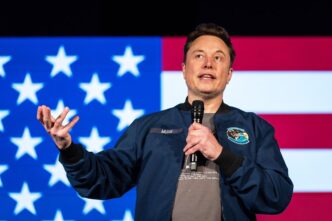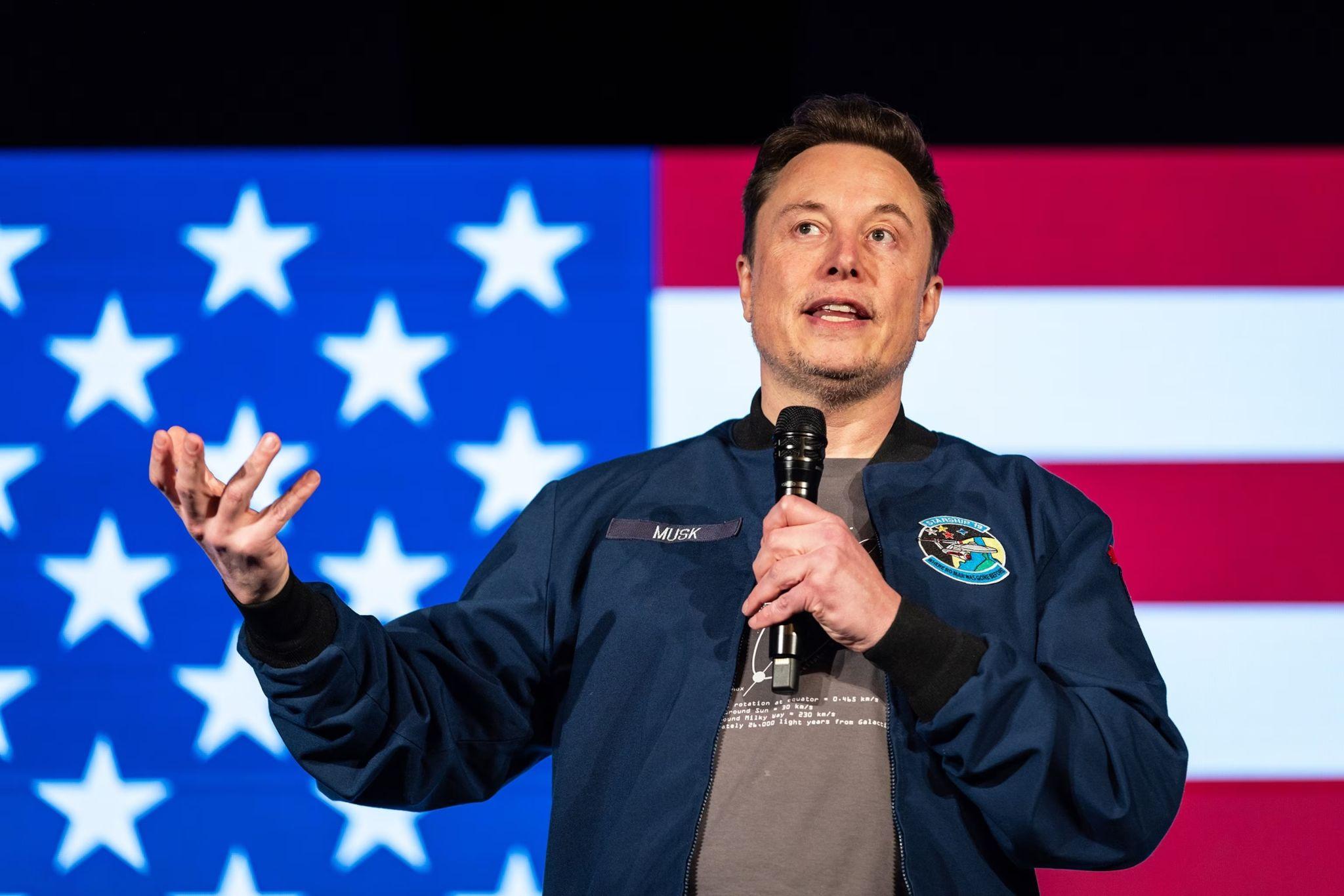Late one autumn afternoon in Pittsburgh, a political rally hummed with anticipation. Signs bearing patriotic colors swayed above the crowd. One banner fused Elon Musk’s name with a red baseball cap, evoking a former president’s signature look. Onstage, a hopeful congressional candidate gripped Musk’s hand and raised both arms high, as though proclaiming a decisive victory.
“God bless you, Elon,” the candidate boomed. “We are so, so grateful.”
The cheers shook the venue. Musk, offering a reserved smile, nodded once and waved. Though he was not on the ballot—at least not yet—his presence announced a change in the political atmosphere. A tech magnate with global fame and vast resources had arrived, ready to nudge a pivotal election in a particular direction.
This scene, unimaginable a few years earlier, embodied the essence of the 2024 race. There stood Elon Musk, championing Republican candidates and urging everyone to “think big.” Each handshake and social media post hinted at one persistent question: Why had the man behind Tesla, SpaceX, and X (formerly Twitter) stepped so boldly into the political arena?
In the not-too-distant past, Musk’s entanglement with politics seemed minor. Tesla was scaling up its electric vehicles, while SpaceX focused on rocket launches for NASA. Musk occasionally spoke about regulations, arguing that government subsidies, whether for oil or renewables, should cease. Yet he rarely took a firm side in partisan struggles.
In 2022, his acquisition of Twitter (rebranded as X) altered that perception. Controlling a massive social media platform meant he could uplift or hinder particular voices, highlight conspiracy theories, or quash them. The question was never if he would shape the political conversation, but how far he would push his influence.
As 2024 approached, many wondered if Musk would remain neutral or endorse a presidential hopeful. Early on, he claimed he had never accepted favors from Donald Trump and had asked for none in return. That neutral facade fractured once Musk’s X feed began to echo conservative messaging. By mid-summer, he formally endorsed Trump, backing up his support with both words and money.
A Financial Shockwave: $45 Million per Month
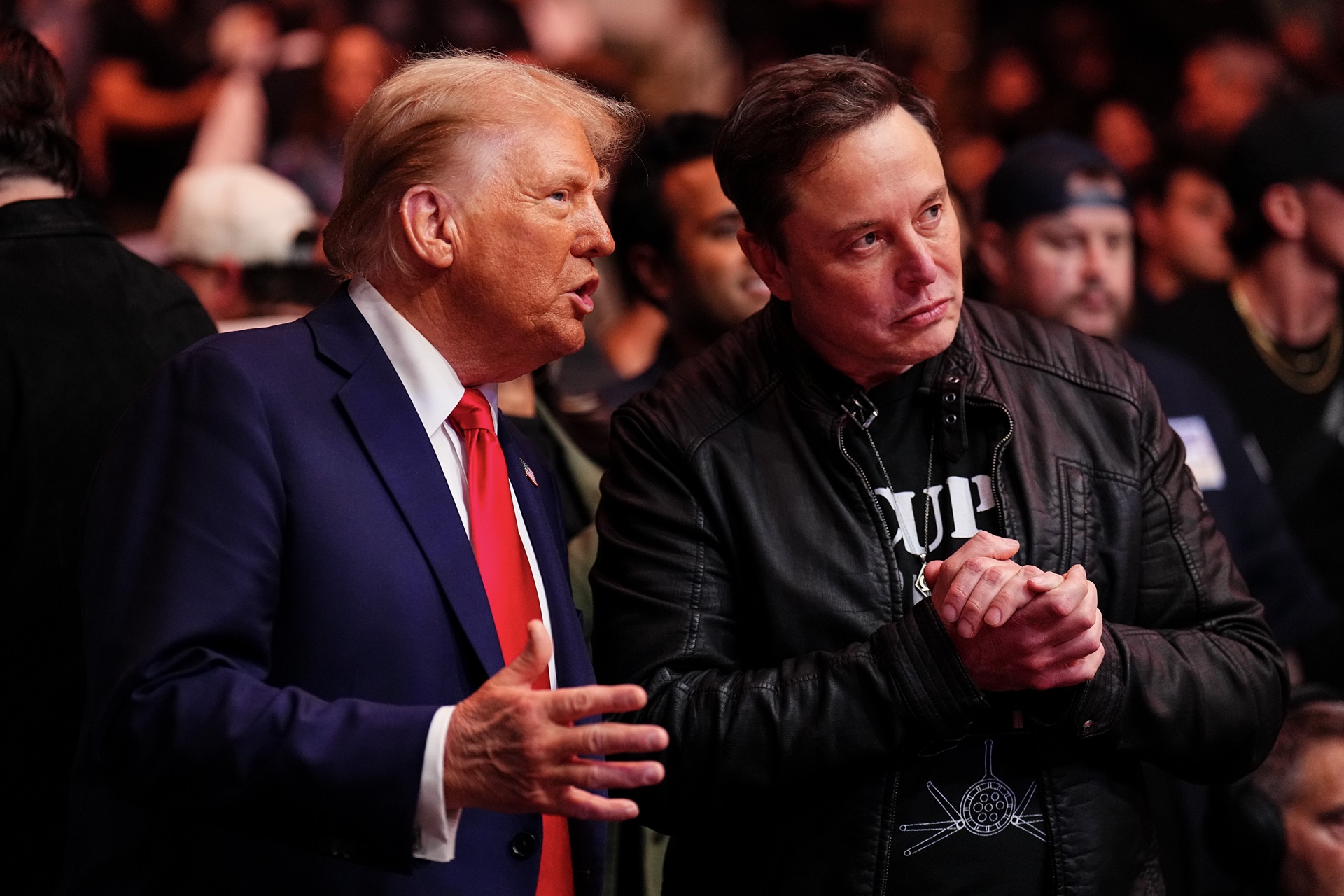
The magnitude of Musk’s endorsement stunned many observers. America PAC (a pro-Trump organization) reported receiving $45 million each month from him. By Election Day, the donations neared $200 million, placing Musk among Trump’s chief benefactors. America PAC touted a broad get-out-the-vote (GOTV) effort across several swing states, including Pennsylvania and Florida. Some questioned its authenticity and ultimate success, pointing to the group’s opaque structures.
Not long after votes were tallied, attention shifted to Blitz Canvassing, a subcontractor America PAC had hired. Reports emerged alleging worker intimidation and the manipulation of contact data. If the canvassing push achieved any significant impact, it left few discernible traces. None of this, however, seemed to dampen the influence Musk wielded in the digital sphere, where he commanded even more authority.
The X Factor: Redefining Political Discourse
Musk’s role at X became the cornerstone of his political ambitions. He exerted substantial control over the platform’s algorithms and moderation. Pro-Trump commentators appeared to experience spikes in engagement, while conspiracy theories thrived with fewer restrictions. Critics accused Musk of tilting X’s algorithms after endorsing Trump, amplifying certain voices while sidelining others.
João Vieira Magalhaes, who researches media and politics, observed that Musk treated X as a “political tool.” Large sections of its “trust and safety” teams had been cut, weakening content oversight and allowing contentious material to spread widely. Musk saw social media less as a site for careful moderation than as a place where provocation and debate could flourish without constraint.
Supporters claimed this shift was overdue, framing it as a victory for free speech after an era of perceived censorship. They argued that curbing disinformation often became an excuse to silence conservative opinions. Opponents insisted that Musk’s approach gave dangerous falsehoods a platform and risked undermining fair elections.
Potential Gains for Musk’s Empire
Musk often frames his moves in idealistic terms. He talks of “pushing humanity forward” with electric vehicles, space travel, and satellite broadband. Yet these innovations also intertwine with his financial self-interest. Tesla’s stock climbed significantly after Trump’s victory, reflecting hopes that another Trump term might enact policies favoring Musk’s ventures.
Eliminating the federal tax credit for electric vehicles might appear detrimental to Tesla. However, Musk has said that removing subsidies would harm legacy automakers more than Tesla, since his company already dominates the EV market. If automakers like Ford and GM scale back on EV development, Tesla could grow its market share even further.
Musk also wants to streamline autonomous vehicle regulations. He has long demanded federal standards in place of piecemeal state laws, arguing that the current system hinders progress. The National Highway Traffic Safety Administration continues investigating accidents involving Tesla’s Autopilot, but a White House sympathetic to Musk might champion a more unified approach, clearing the way for driverless fleets years earlier than expected.
SpaceX stands to benefit if NASA or the Space Force sees increased funding. Trump once promoted the idea of an expanded Space Force, and Musk has signaled that another Trump term could mean more resources for missions to the Moon and Mars.
Critics note that Musk wraps space exploration rhetoric around relentless lobbying, but supporters point out that SpaceX has successfully lowered launch costs and revitalized interest in commercial space flight.
DOGE: Cheeky Acronym or Substantive Shift?
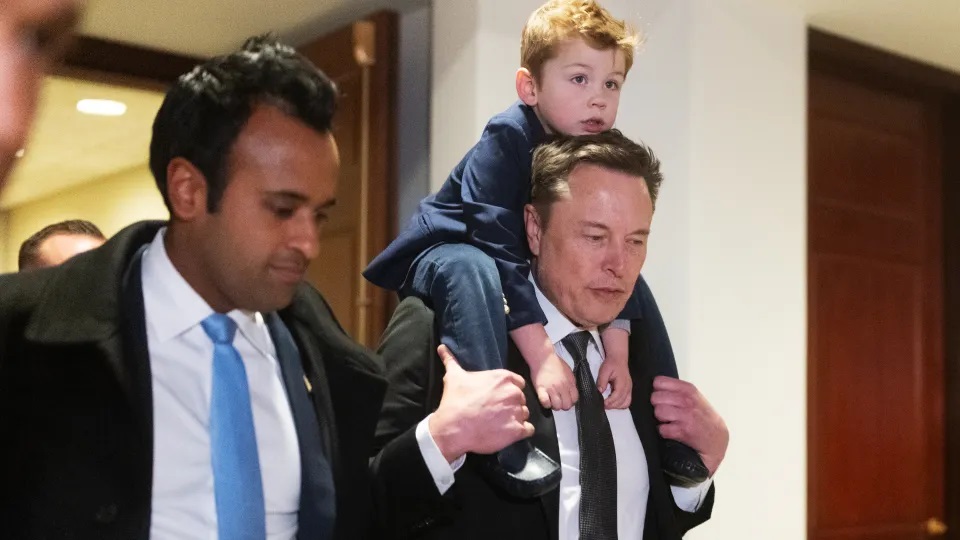
Not long after the election, Trump announced a new federal advisory group called the Department of Government Efficiency, or DOGE. Musk became a co-leader. The acronym recalled Dogecoin, a meme-based cryptocurrency that Musk often promoted. Soon after the announcement, Dogecoin’s value jumped, fueling speculation about whether the committee was a serious undertaking or a public relations stunt.
Whatever DOGE’s true nature, it showed Musk’s eagerness to hold an official role. He no longer merely funded politicians from behind the scenes. Now he was in a position to oversee efforts to slash trillions of dollars from federal spending. Critics feared that “government efficiency” might serve as code for funneling more contracts toward Musk’s companies. His net worth reportedly soared by $170 billion in the days following the election, feeding suspicion that his philanthropic claims masked profit-seeking motives.
Musk’s defenders countered that his business style could help eliminate federal bloat, citing NASA’s collaboration with SpaceX as a cost-saving example. Whether one saw DOGE as a turning point or a quirk, it confirmed that Musk wanted to shape policy, not merely influence it discreetly.
Phil Napoli (a public policy scholar at Duke University) described Musk as turning his ownership of X into “governmental clout” with potentially massive payoffs. Musk’s example did not go unnoticed in Silicon Valley. Mark Zuckerberg of Meta and Jeff Bezos of Amazon soon visited Trump at Mar-a-Lago, possibly to align with the new administration’s views on tech policy. Zuckerberg professed a strong desire to guide national technology policy, hinting at the shape of things to come.
This shift marked a break from the old practice of corporate lobbying through intermediaries. Now, CEOs were onstage with candidates, using social media platforms to endorse officials in real time. Politicians, for their part, appeared eager to tap these platforms for direct messaging. Such open collaboration could become the new normal, with entrepreneurs leveraging their internet empires to sway elections, while legislators grant them beneficial regulations.
For some, Musk’s moves signaled a natural evolution of big money’s role in politics. Previous eras hid these relationships behind closed doors. Musk’s methods, however, are public-facing, often theatrical, and fueled by the viral power of tweets. This environment allows him to mobilize a vast user base overnight, overshadowing traditional campaign ads and stump speeches.
A Global Reach: Musk’s Foreign Forays
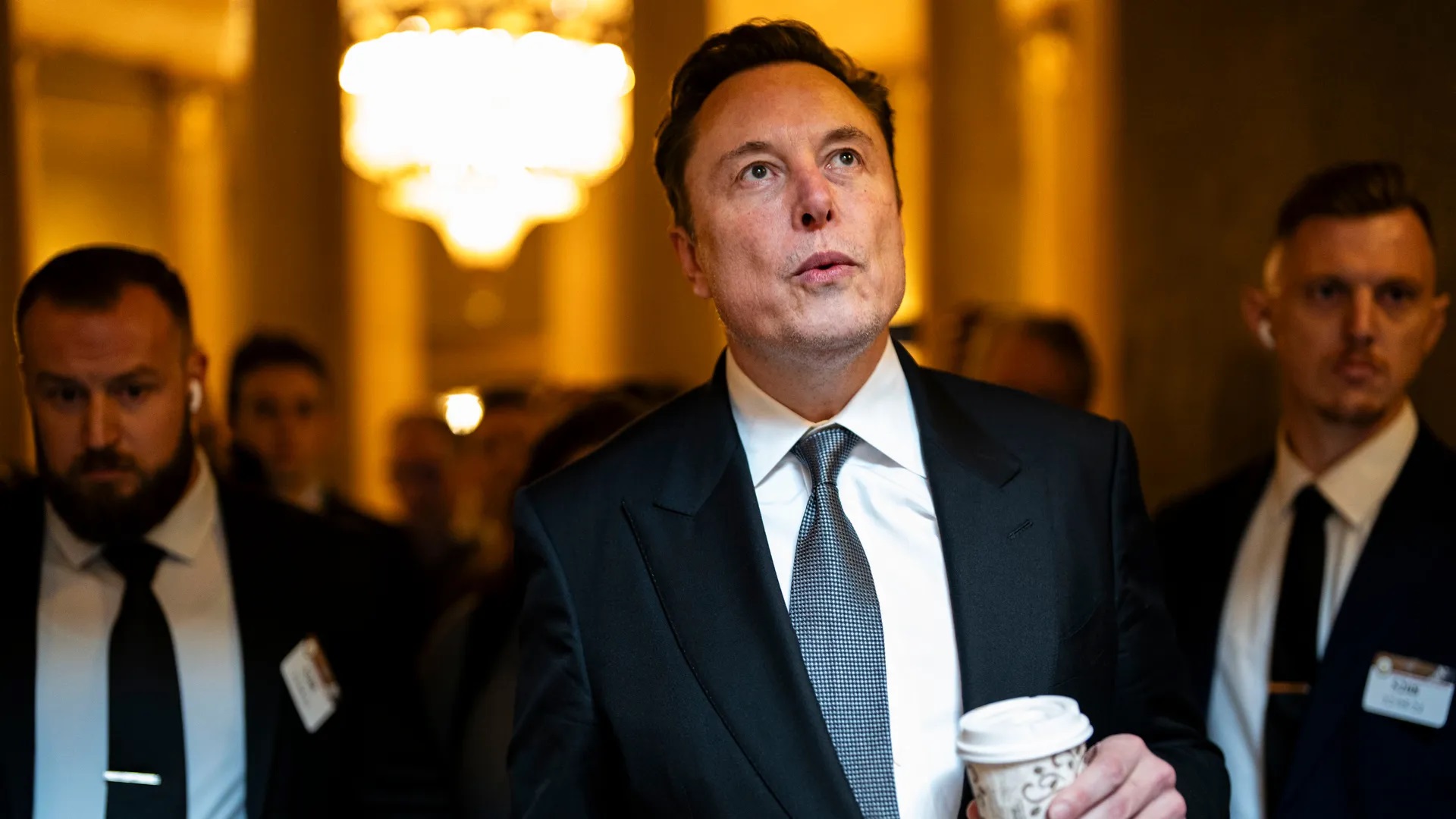
Musk’s ambitions extend beyond U.S. borders. He has visited the United Kingdom to meet with far-right figures and has expressed support for the Alternative for Germany (AfD). In Brazil, he defied a court order demanding X remove accounts that officials said undermined election integrity, framing it as a free-speech issue. His critics saw it as a willingness to override local laws and prop up extremist rhetoric.
Such involvement unsettled foreign governments. If Musk’s platform was vital for national debates, leaders faced a choice between courting him or confronting him. Some worried that his worldview reduced other countries’ democratic rules to “censorship” while ignoring the complexities of local governance. Over time, Musk’s global excursions could reshape international relations, as officials in multiple nations grapple with a billionaire whose influence seems to rival or surpass that of traditional state actors.
Historical Echoes: From Gilded Age to Digital Age
Powerful players shaping American politics date back at least to the Gilded Age, when moguls like John D. Rockefeller and Andrew Carnegie influenced legislation through financial clout. Their dealings were often cloaked, whereas Musk’s approach is visible to everyone with internet access.
He announces endorsements, forms partnerships, criticizes officials, and stokes controversies—all in the public eye.
His empire spans multiple sectors, including electric vehicles, aerospace, internet services, and artificial intelligence. Each field is subject to government oversight. A regulatory change, new federal contract, or special tariff exemption could redirect billions of dollars. Musk’s ability to consolidate these relationships under a banner of futuristic progress worries critics who see it as a path to unrestrained corporate power.
Public Perception: Idol, Villain, or Both?
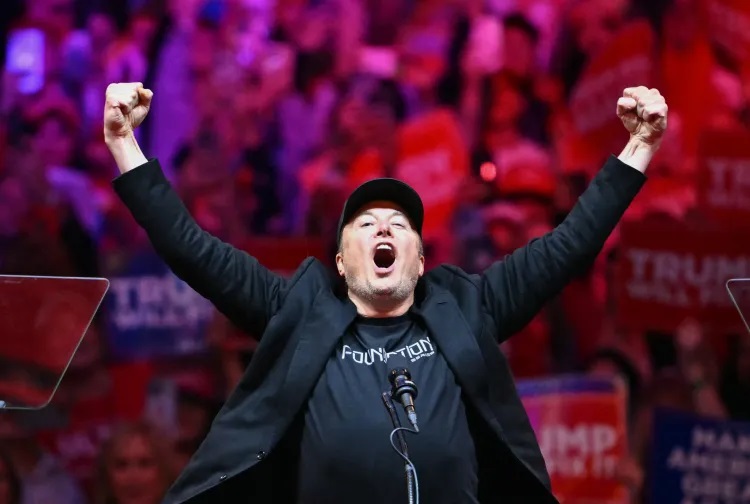
Musk’s status as a cultural figure is deeply polarized. Admirers see him as a revolutionary who rebranded electric cars from niche curiosities to coveted consumer items, who pushed NASA toward modern partnerships, and who brings fresh ideas to an often-stagnant political system. They see a bold risk-taker who challenges corporate norms and invests in daring concepts like Mars colonization.
Skeptics contend that he is impulsive, opportunistic, and dangerously unaccountable. They point to his habit of stirring online mobs against critics, lashing out with sarcasm or legal threats, and driving entire news cycles with a single cryptic post. His stance on “free speech” can appear hypocritical when it seems to serve his own interests. If he chooses to punish a detractor on X or reward an ally, there is no formal oversight mechanism to stop him.
Democracy relies on transparent institutions and balanced input from diverse constituencies. Musk, unelected and answerable to no constituents, sits at policy-shaping tables through sheer wealth and influence. Whether he fosters a more efficient government or warps politics to enrich himself depends on who is speaking and where one’s political sympathies lie.
Trump and Musk: Governance by Social Media?
A commentator at Wired predicted an era of “governance by social media post,” reflecting the unfiltered styles of both Musk and Trump. Trump once used Twitter to unveil policy ideas, fire officials, and shift diplomatic positions without advance warning. Musk can rattle stock prices or joke about cryptocurrencies, causing intense volatility in markets.
Their combined presence raises the possibility that major decisions affecting millions might unfold spontaneously online, in full view of the public but outside standard vetting processes.
Supporters claim this level of directness erodes the influence of media gatekeepers, giving people unvarnished insights into leadership. Critics maintain that it fosters confusion, misinformation, and superficial policy debates. They stress that a country’s direction should not hinge on impulsive tweets or marketing gimmicks. The prospect of an entire administration shaped by “moments of hype” unnerves bureaucrats, business leaders, and average voters alike.
Potential Pitfalls and New Alliances
A second Trump administration might relax regulatory measures for Tesla, SpaceX, or other tech giants. Agency heads appointed by Trump could expedite approvals for self-driving cars or sign off on defense and space contracts that favor Musk’s ventures. Civil servants worried about safety and equity might find themselves sidelined.
Musk’s supporters say that forcing the government to move quickly could supercharge innovation. They point to SpaceX’s reusable rocket technology, which revitalized a sleepy aerospace sector, or Tesla’s status as the world’s leading electric-vehicle manufacturer. Critics fear that decision-making by tweet or ephemeral alliance undermines stable governance and opens the door to graft, favoritism, or outright manipulation of policy to line corporate pockets.
A Moment to Reflect on Musk’s Endgame
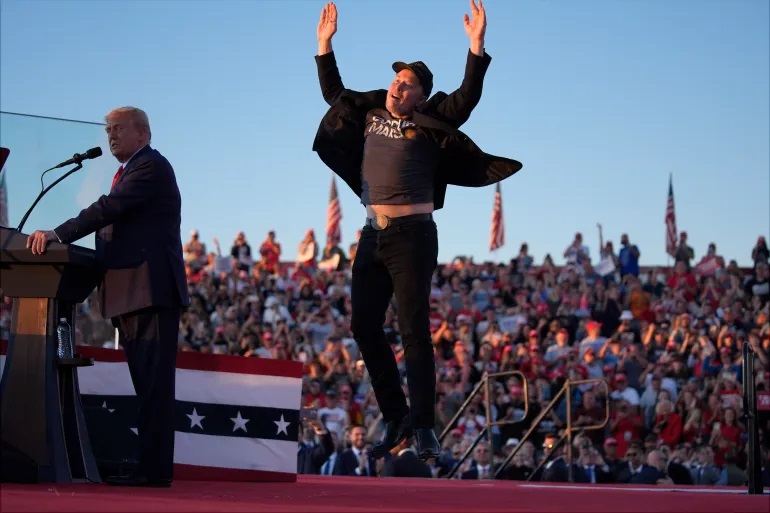
Musk insists that his overarching mission is to advance the human race, whether through emission-free cars, colony ships to Mars, or broader freedom of expression on social media. He regards politics as a means to secure resources and clear regulatory hurdles for grand-scale ideas. His style is impatient, technical, and brash, better suited to startup culture than to legislative bodies.
His detractors see a pattern of courting government support—billions in contracts or tax incentives—while publicly railing against “subsidies.” They note the double standard in how he defends free speech yet seems ready to silence or mock those who oppose his vision. As more of the public square moves online, his platform’s policies may have profound implications for civic life worldwide.
Life in the Disruptive Age
Experts note that Musk’s methods mirror a shift in political power itself. Technological titans are no longer satisfied with influencing campaigns from behind the curtain; they position themselves front and center. Populist leaders like Trump respond in kind, realizing that forging ties with social media moguls can unify a large swath of the electorate and energize the news cycle. Musk, meanwhile, capitalizes on his image as an eccentric visionary, enthralling supporters and unsettling critics with near-equal intensity.
Public officials and citizens alike are left to wonder whether traditional checks and balances can respond to this new paradigm. Politicians once operated within slow-moving structures. Now, a handful of global influencers can redirect a policy discussion with a single viral post. The implications for workers at Musk’s factories, for NASA engineers, and for people relying on X for news are immense.
The DOGE committee exemplifies the weird blend of internet culture and real-world governance. With Musk’s dog-centric cryptocurrency meme crossing into an actual White House initiative, observers struggled to determine whether to laugh or cringe.
Dogecoin’s price doubled, fueled by the mere hint of official recognition. The serious task of paring down the federal budget seemed overshadowed by a Shiba Inu meme and a few online jokes.
Supporters insisted that this irreverent touch was precisely what Washington needed. Washington insiders, in their view, had grown complacent, and someone with Musk’s flair might slash bureaucratic waste. Detractors found the entire spectacle a sign of waning decorum. In their eyes, it trivialized difficult decisions that could impact defense spending, health care, and social welfare programs.
Musk, having promoted Dogecoin in the past, knew the comedic angle would grab headlines. Critics suspected that behind the playful facade lay a potentially massive rearrangement of national spending that might funnel money into Musk’s sphere. Even so, many people could not help but snicker at a committee acronym that evoked an internet joke.
Borders and Influence: The International Angle
Beyond America, Musk’s tendency to defy constraints repeatedly surfaces. In Brazil, when ordered to remove accounts spewing far-right disinformation, he balked, claiming that it infringed on free speech. In Europe, he was seen hobnobbing with figures on the far right, prompting accusations that he was stoking extremism. Foreign governments grapple with a billionaire who may disregard their laws if he views them as restrictive, and who has the means to shift investments to friendlier locales.
This dynamic has begun to unsettle diplomatic circles. If a powerful individual flouts a nation’s regulations, how should officials respond? Some try to appease him, hoping to secure Tesla factories or SpaceX launches. Others threaten legal action, though enforcing it is tricky when his companies and assets span continents. Musk’s principles appear fluid in practice, shaped by circumstances that intersect with his personal or corporate goals.
Tensions with Traditional Institutions
U.S. agencies, such as the Securities and Exchange Commission, have struggled for years to rein in Musk’s habit of announcing market-moving news on social media without prior disclosure. Now that he is entangled in policy decisions, the stakes have risen. Regulatory bodies overseeing space, automotive safety, and finance may likewise find themselves outmatched if Musk decides to question their mandates.
He moves quickly, discarding conventional processes in favor of direct appeals to the public. In a single day, he might post a provocative message, meet with foreign leaders, and propose sweeping changes to NASA’s budget. By the time a public agency attempts to respond, the world has often shifted again. This mismatch of pace benefits Musk, leaving slower bureaucratic models scrambling.
Plausible Benefits vs. Democratic Risks
Musk’s boldness has produced tangible successes. Tesla forced automakers to expedite EV production, helping reduce fossil fuel consumption. SpaceX slashed the cost of orbital missions, inspiring NASA to lean on commercial partners instead of relying exclusively on old-guard defense contractors. If Musk can replicate such efficiency in other governmental spheres, the public might see genuine gains.
Others worry about the fragility of checks and balances. If an official requires social media support to pass legislation, might that official compromise with Musk on regulations that affect his companies? Could entire policy areas tilt to favor the preferences of one billionaire?
The question of accountability looms large, particularly when Musk’s own platform can promote or silence critics with minimal oversight.
A Return to Pittsburgh
Once the Pittsburgh rally concluded, Musk left in a black Tesla, accompanied by security and staff. A handful of supporters lingered, replaying his words and wondering whether a Musk-backed facility might soon revitalize their region. Some believed they had witnessed a transformative figure bridging political and technological realms. Others departed with unease, apprehensive about an era where corporate leaders could step into campaign rallies as kingmakers.
Musk’s discussions with local leaders about new projects in space engineering or electric-vehicle manufacturing hinted at economic hope. He had also spoken to state officials, signaling that incentives could steer Tesla or SpaceX expansions to the area. The candidate who shared the stage with him basked in the media coverage, aware that Musk’s endorsement could provide a decisive boost.
Looking Toward Tomorrow
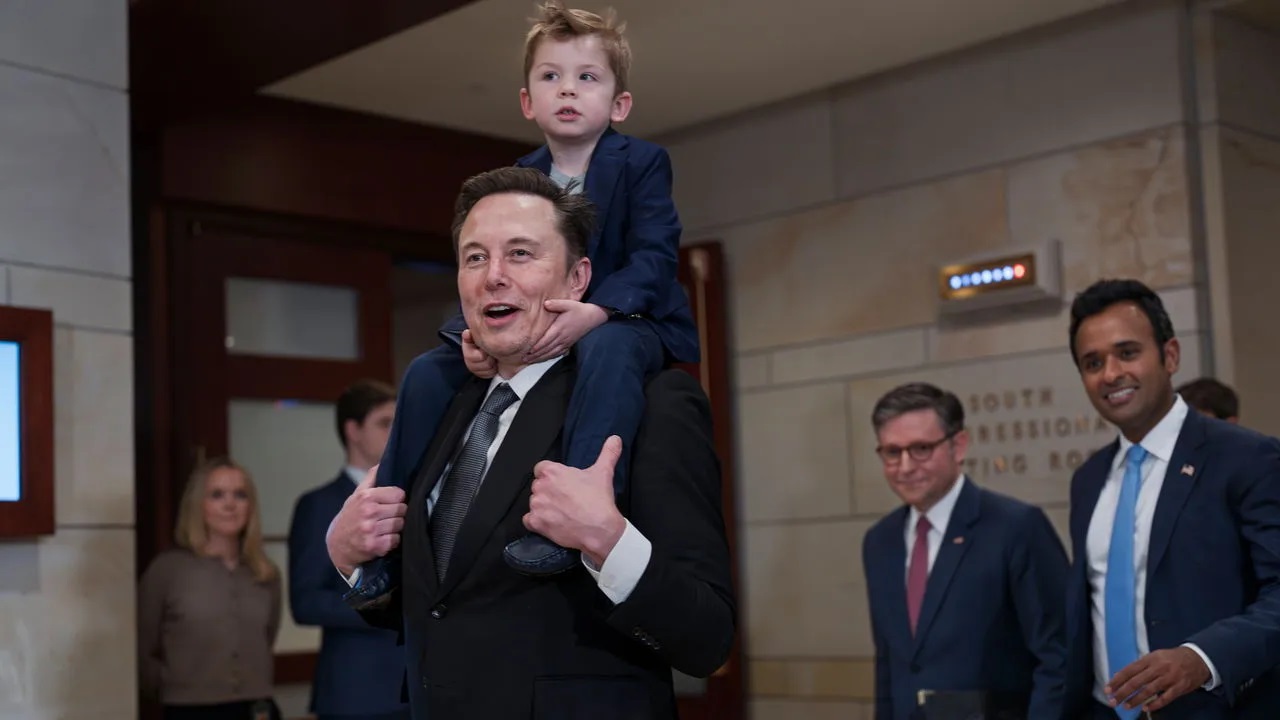
This saga transcends Musk alone. It captures the dawn of a political age in which wealthy innovators and populist politicians forge alliances for mutual benefit. Rather than donating behind closed doors, these magnates appear in front of cameras, tweeting and live-streaming endorsements that ignite social media chatter.
Campaign strategies adapt in turn. Politicians seek not just money but also direct online boosts from CEOs with massive platforms. The public, meanwhile, is swayed by memes, viral clips, and retweeted sound bites. Voters continue casting ballots, yet the flow of information they receive is filtered through digital pipelines controlled by a select few.
Opposing viewpoints do exist, but fact-checkers and journalists struggle to keep pace with an unending torrent of posts. The fear that misinformation could dominate resonates, especially when official announcements come across as half-formed ideas published on a whim. That confusion deepens the tension around political discourse.
By evening, the roar of applause in Pittsburgh faded, leaving behind discussions of Musk’s speech and the possibility that he might reshape electoral outcomes for years to come. The aftershocks of his involvement extend beyond campaign finance, casting a spotlight on how private wealth and digital networks can circumvent traditional political frameworks.
Musk maintains that his priority is the betterment of humanity: electric cars to combat climate change, rockets to expand civilization into space, and an online sphere where speech faces minimal restraint. Critics concede his achievements while questioning the ethical and democratic repercussions of giving one individual so much leverage over policy, both in the United States and abroad.
In an era when a single influencer can harness media platforms, billions in capital, and direct access to national leaders, the line between corporate ambition and public good grows porous. Institutions created to preserve checks and balances may need urgent updates. Citizens worry that democracy, already strained by partisanship, could buckle further under the weight of billionaire-driven agendas.
Musk’s presence in Washington—advising on budgets, shaping technology initiatives, and negotiating defense appropriations—seems poised to expand. Efforts by other tech titans to mirror his playbook signal the enduring effects of this transformation. Whether these developments spark extraordinary innovation or diminish public governance remains open to debate.
The final question, as always, hinges on how societies respond. Will they demand more regulation to ensure transparency and fairness, or will they acquiesce, seeing Musk’s style as the price of accelerated progress? The stakes reach from local factory workers hoping for new Tesla jobs to scientists relying on NASA grants, from everyday citizens scrolling X feeds to lawmakers worrying about the next viral tweet.
For now, Elon Musk’s political gambit continues with no clear endpoint, an evolving story that has already altered the rules of engagement. Where it leads next may hinge on a handful of social media posts, a sudden pivot in policy, or a handshake behind closed doors. In a world where power can coalesce quickly around the ambitions of a single individual, democracy faces its most modern test yet.
